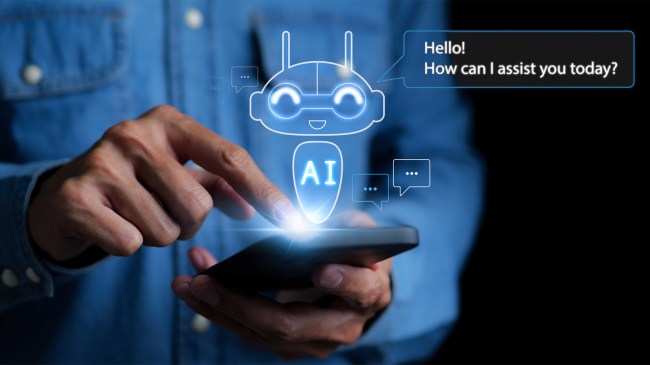iStockphoto
A new survey has revealed that many Americans believe artificial intelligence (AI) models are already sentient, or self-aware, and that’s a problem.
The survey of 3,500 people in the United States was conducted by Jacy Reese Anthis and his colleagues at the Sentience Institute in New York.
What they discovered from the nationally representative sample, according to New Scientist, is that one-fifth of those surveyed believe artificial intelligence is already sentient (it isn’t) and 30 percent believe artificial general intelligences (AGIs) that can perform any task a human can already exist (they don’t).
Conducted in three waves between 2021 and 2023, the survey asked people things like whether they believe robots/AIs that currently exist are sentient, and whether it will ever be possible for artificial intelligence to reach sentience.
“I think we perceive mind very readily in computers,” said Anthis. “We see them as social actors.”
He blames big tech companies selling their AI products as having more abilities than they really do.
“There’s a lot of hype in this space,” he said. “As companies have started building their brands around things like AGI, they have a real incentive to talk about how powerful their systems are.”
In the researchers’ paper, published on the arXiv pre-print server, Anthis and his colleagues worry that the more people believe AI is sentient, the more confidence it will place in its judgements, even if they are wrong.
Interestingly, they also learned that 63% of those surveyed support a ban on smarter-than-human AI and 69% support a ban on sentient AI.
They also found out that most people believe AIs may be harmful to future generations of people (74.7%), people in the USA (70.4%), and me personally (58.7%).
47.9% agreed that AI is likely to cause human extinction, while 72.4% claimed the safety of AI is one of the most important issues in the world today.
In conclusion, the researchers wrote, “The evolving discourse on AI sentience and digital minds has only scratched the surface of the complex interplay of advancing AI technology, human attitudes and beliefs, and emergent social dynamics. … We found that people tend to think AIs can be sentient, have moral concern for and feel threatened by sentient AIs, favor slowing down and banning many AI developments, and think sentient AIs already exist or will soon.
“Designers need to take seriously the consequences of these tendencies, such as differences in reactions across demographics and changes in longstanding HCI [human-computer interaction] dynamics.”

